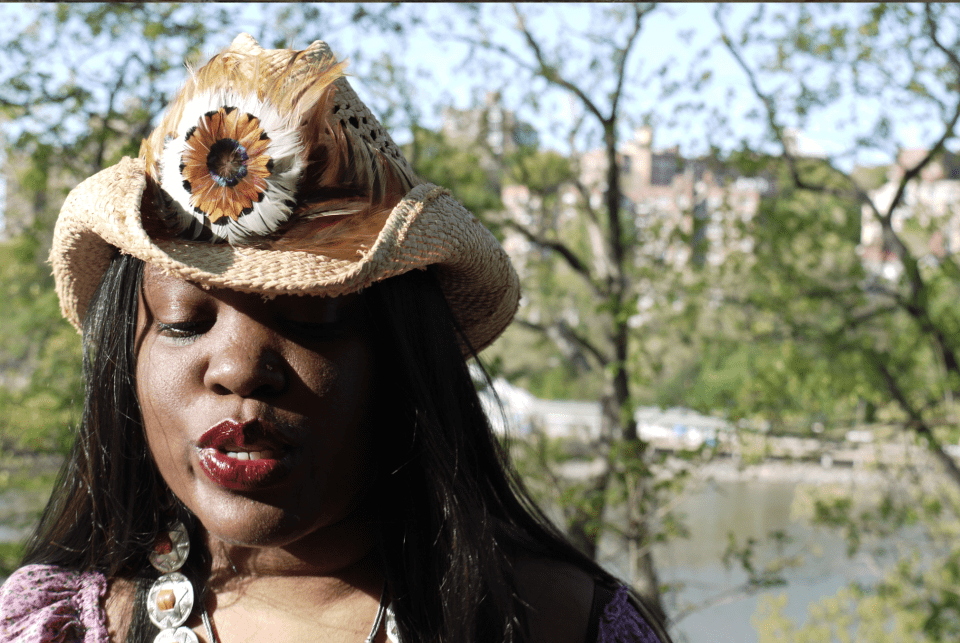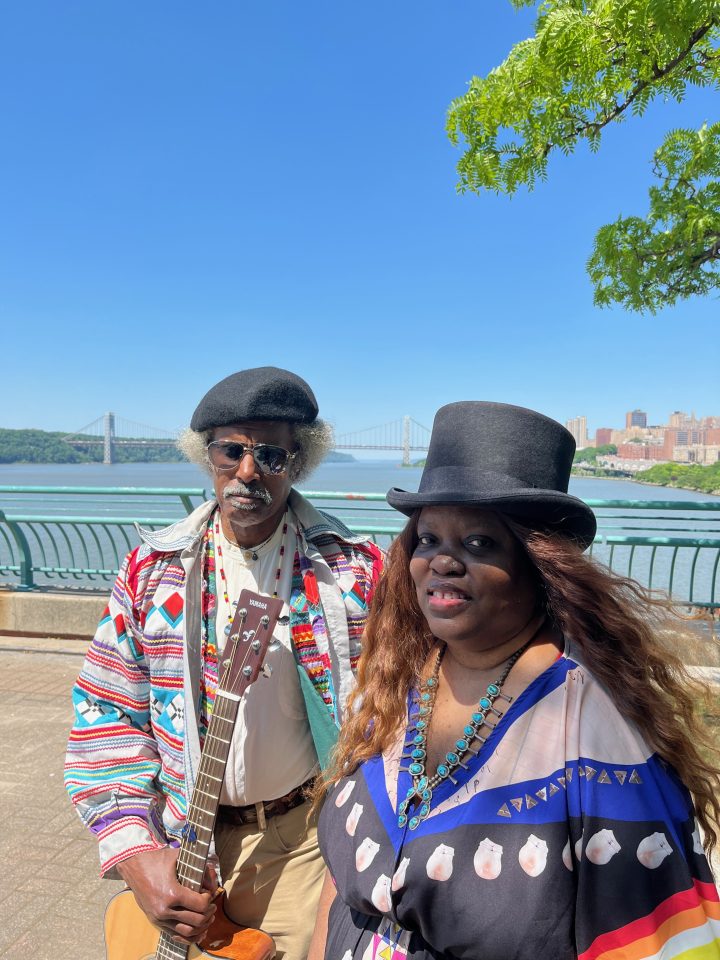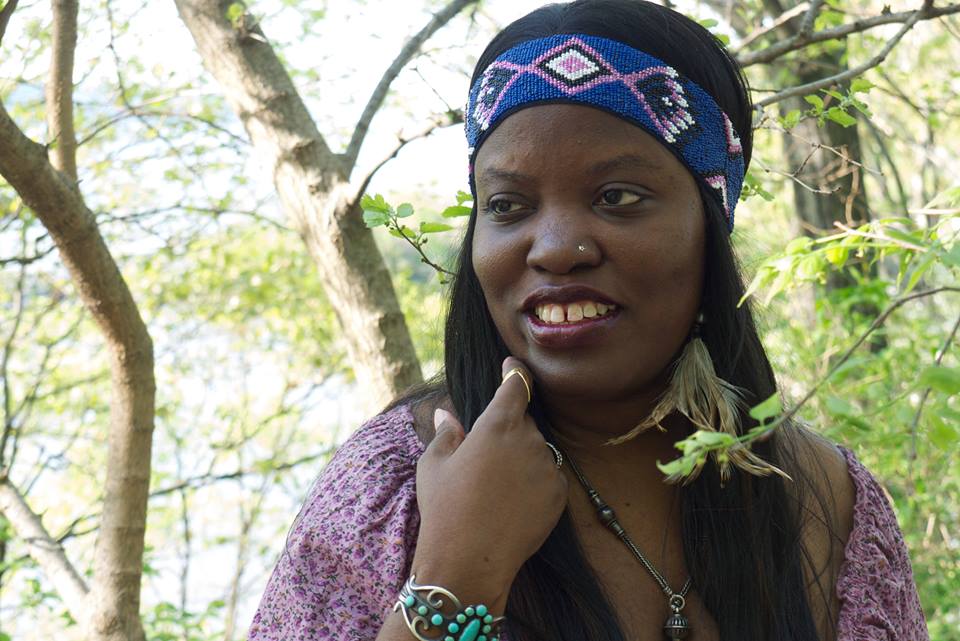Three years ago, NPR published an article on the Black female recording artists who were challenging racism and exclusion, in an industry that has long refused to properly acknowledge the foundational role of Black people in country and Americana music. But if you go even further back you will discover the name Kandia Crazy Horse, an independent recording artist who has also been working to break down such barriers ever since her 2013 debut album, Stampede. Since then she has formed a trio, Cactus Rose NYC, including her (Pamunkey), Lonnie Harrington (Seminole/Shawnee/Cherokee) and Jeff McLaughlin.
The band released their first EP this year, Live From Lenapehoking: Field Recordings, which was recorded live in Central Park. On Dec. 23, they will perform their final show of the year at Mercury Lounge in New York. In this interview, Crazy Horse shares her thoughts on the state of Black people in country and Americana music.
What are your thoughts on the state of Black artists in country and Americana music, especially post-Beyoncé’s Cowboy Carter album?
Since then, there has been an explosion of Black artists in Americana and also a new crop of Black country singers other than Darius Rucker and Mickey Guyton. Shaboozey — who’s done very well with his hit single — is just the tip of a deep well of such acts. There’s a limited platform for Black roots artists. But some of these more prominent Black country and Americana artists have lately been observing a sort of backlash to their large strides in the industry. It still remains to be seen if there can be a sustained wide audience for Black artists in twang, especially a Black audience.

As a former music critic, are there enough critics today who can properly assess and champion the Americana music you create?
I was a rock critic for over 20 years. I am reflecting on that time this weekend as I learned that my dear friend and former surrealism professor at the School of Visual Arts, Lorraine O’Grady, has walked on. She contributed to my book, Rip It Up: the Black Experience in Rock ‘N Roll. People like Lorraine I revere. But most of those writers have passed or moved on to other kinds of work or creation. My problem for my music is that my former colleagues haven’t been keen to cover my music. As a critic, I championed Southern musicians, Black artists in roots music and country and Indigenous artists. But I don’t have an equivalent writer like me to write about my art.

On your website you mention that the trio is “…currently fundraising to record a new album that centers on the original gold rush in Georgia USA that displaced the Cherokee from their homeland…” What role do you think music plays in addressing the injustices experienced by the Indigenous?
My overriding mission with Cactus Rose NYC is to give voice to the voiceless – primarily our Afro-Indigenous relatives of Indian Country – and also to amplify the experiences of Indigenous women in general from across Turtle Island [North America]. Music is the great connector, so it’s definitely in that arena that Indigenous artists have a sympathetic ear that seeks to understand our plight. Music is the way to express turbulent history that America doesn’t want to acknowledge. We are strong, resilient people, and that also comes across in our songs. As a band we are committed to addressing the injustices experienced by Indigenous folks. I have [also] organized, curated and participated in benefits for Indigenous movements.
This interview has been edited and condensed for clarity.















